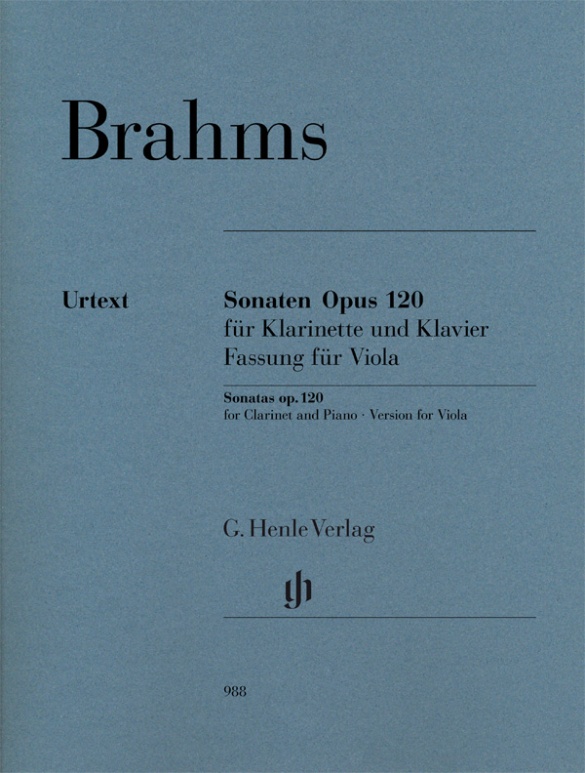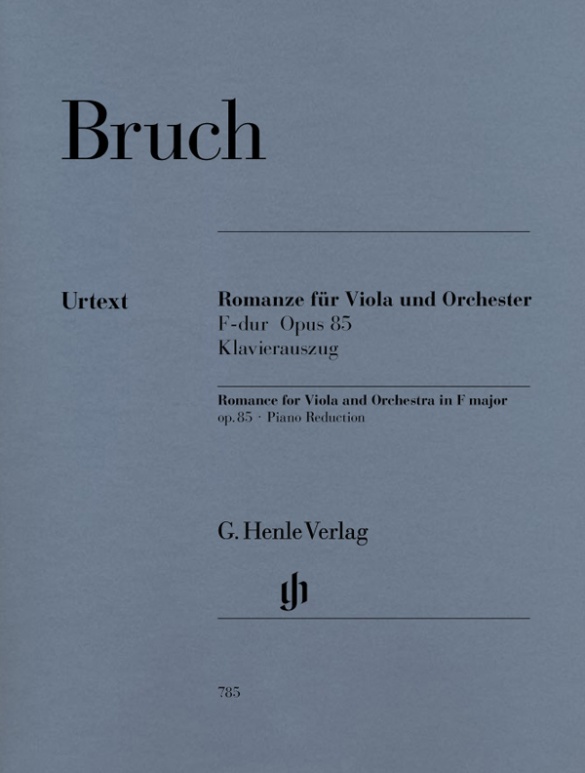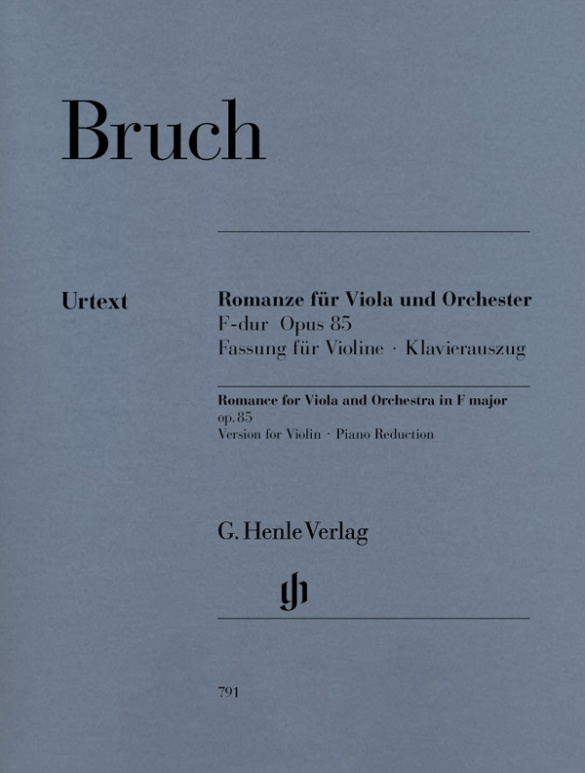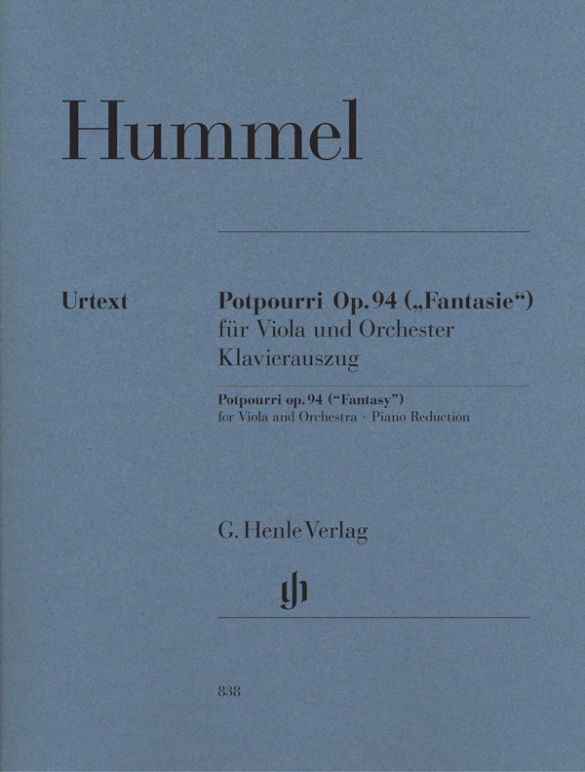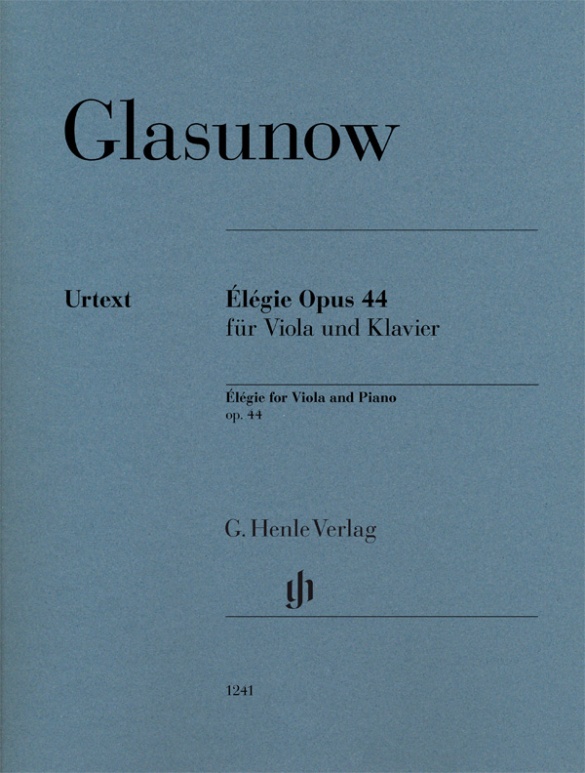

Alexander Glazunov
Élégie op. 44 for Viola and Piano
A precious gem of romantic viola literature is now available in Henle quality! Thanks to the publisher’s good connections to Russian archives, we were able to assess Glazunov’s autograph for the first time for this first Urtext edition, and uncover the discrepancies between the autograph and the first print. Written in 1893 for the Danish violist Franz Hildebrand, the Élégie is one of the few original works of the 19th century for viola and thus a welcome enrichment of the repertoire. Since the piece does not make any particularly high technical demands on the soloist, the Élégie is ideally suited for teaching as well – and Tabea Zimmermann’s fingerings guarantee the best possible support.
mws-henle.cms.title-works.headline
mws-henle.cms-product-detail.composer-headline
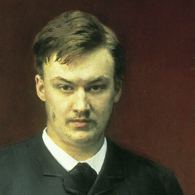
Alexander Glasunow
A Russian composer and conductor, whose works are distinguished by diverse stylistic features. His music is also characterized by the use of folkloric elements, typical of the St. Petersburg tradition. His works include eight symphonies, concerti, chamber music, songs, and stage works.
| 1865 | Born in St. Petersburg on August 10, the son of pianist Elena Pavlovna. As a child he learns piano, viola, and cello. |
| from 1877 | He receives instruction in harmony and other subjects. |
| 1880 | At the suggestion of Mily Balakirev, he becomes a pupil of Nicolai Rimsky-Korsakov on January 4. |
| 1882 | On March 29 his first symphony is premiered at a concert of the Free School of Music. Enamored by it, Mitrofan Belyayev becomes his patron. |
| 1884 | At Belyayev’s initiative, his symphony is performed once more, in Weimar, where he also meets Franz Liszt. A tour through France, Morocco, and Spain ensues. |
| 1889 | He conducts his own works at the Paris Exposition Universelle. |
| 1899 | He becomes professor of orchestration at the St. Petersburg Conservatory. |
| 1904 | He writes the Violin Concerto in A minor, op. 82. |
| 1905–30 | Director of the St. Petersburg Conservatory. In times of political turbulence, he endeavors to preserve the autonomy of the conservatory and to maintain musical exchanges with the West. |
| 1907 | He is awarded honorary doctorates in music by Oxford and Cambridge universities. |
| from 1928 | He travels to Vienna to attend a Schubert competition as a jury member, after which he settles in Paris. He receives engagements as a guest conductor in Europe and North America. |
| 1936 | Dies in Paris on March 21. |
mws-henle.cms-product-detail.author-headline
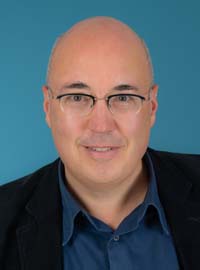
Dominik Rahmer (mws-henle.person.role.HERAUSGEBE)
Dr. Dominik Rahmer, born in 1971 in Mainz, studied musicology, philosophy and maths in Bonn. He did his Magister Artium in 1999 and his doctorate in 2006 with a thesis on the music criticism of Paul Dukas.
From 2001 to 2011 he was employed at Boosey & Hawkes/Bote & Bock in Berlin, where he also worked on the Critical Edition of the Works of Jacques Offenbach (OEK). Since 2011 he has been an editor at G. Henle Publishers in Munich, with a particular focus on French and Russian music and works for wind instruments.

Klaus Schilde (mws-henle.person.role.FINGERSATZ)
Prof. Klaus Schilde, born in 1926, spent his childhood in Dresden. There he was greatly influenced by Walter Engel, who taught him the piano (Kodaly method), composition and violin. From 1946–1948 he studied at the music conservatory in Leipzig with Hugo Steurer. After moving to the west in 1952 he studied with Walter Gieseking and Edwin Fischer, as well as with Marguerite Long, Lucette Descaves and Nadia Boulanger in Paris.
Schilde won numerous prizes. From 1947 onwards he gave concerts as a soloist and chamber musician on almost every single continent with renowned orchestras. He taught at the music conservatories in East Berlin Detmold, West Berlin, Munich, Tokyo (Geidai) and Weimar. From 1988–1991 he was President of the Staatliche Hochschule für Musik und Theater in Munich, where he also taught for decades as a professor. There are numerous radio and television broadcasts with Klaus Schilde as well as CD recordings. Schilde has contributed fingerings to almost 100 Henle Urtext editions.
Prof. Klaus Schilde passed away on 10 December, 2020.
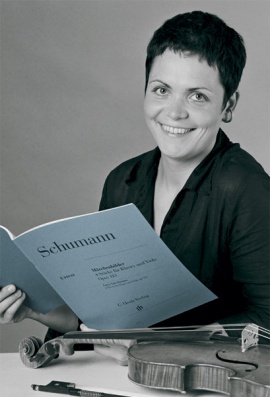
Tabea Zimmermann (mws-henle.person.role.FING VIOLA)
Product Safety Informations (GPSR)

G. Henle Verlag
Here you can find the information about the manufacturer of the product.G. Henle Verlag e.K.
Forstenrieder Allee 122
81476 München
Germany
info@henle.de
www.henle.com
As usual, Henle have provided a fingered as well as a clean copy of the viola part, with their customary excellence in print layout. A must for violists to include in their repertoire.
AUSTA Stringendo, 2015推荐
autogenerated_cross_selling
本书目其他版本


